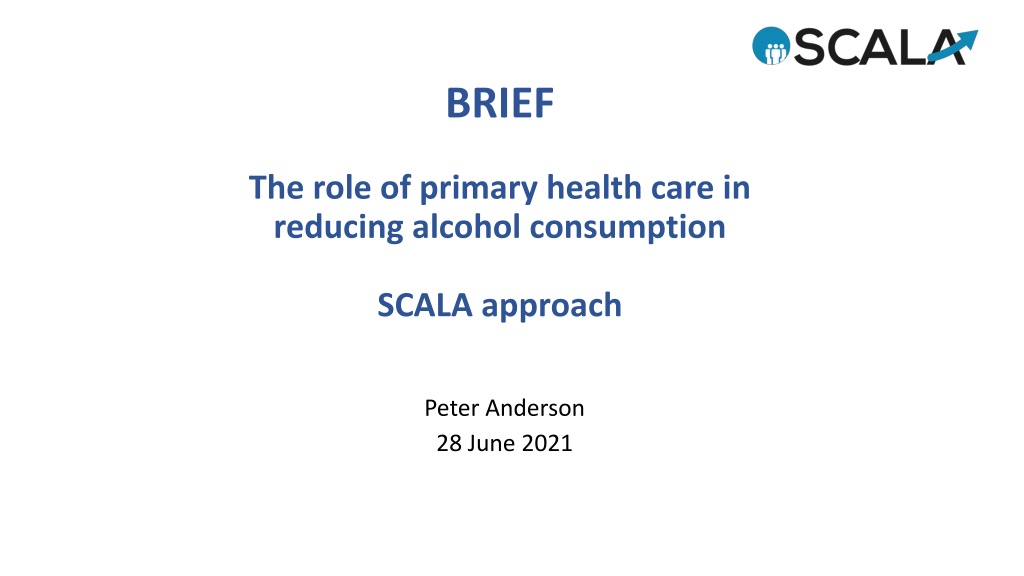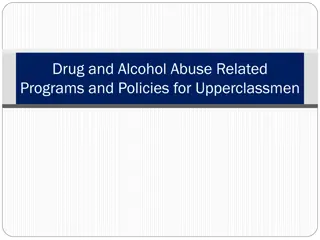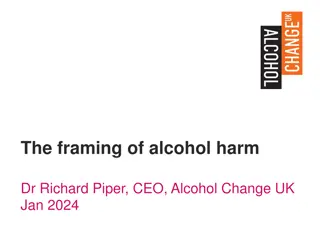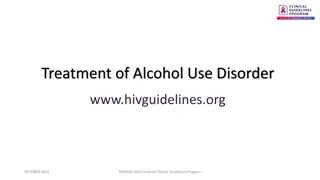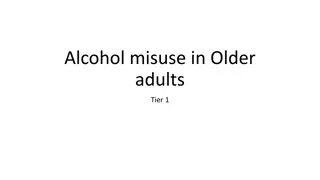Role of Primary Health Care in Reducing Alcohol Consumption: SCALA Approach
Primary health care plays a crucial role in reducing alcohol consumption by measuring patients' alcohol intake and providing advice to cut down. This approach helps patients drink less and improves their overall health. Training and local support are essential in implementing this strategy effectively.
Download Presentation

Please find below an Image/Link to download the presentation.
The content on the website is provided AS IS for your information and personal use only. It may not be sold, licensed, or shared on other websites without obtaining consent from the author. Download presentation by click this link. If you encounter any issues during the download, it is possible that the publisher has removed the file from their server.
E N D
Presentation Transcript
BRIEF The role of primary health care in reducing alcohol consumption SCALA approach Peter Anderson 28 June 2021
Why do we need to drink less? 40-year olds who drink more than five drinks a day lose 4-5 years of life, compared with those who drink less than one drink a day Alcohol causes a number of different cancers, with no level of consumption that is risk-free
Everyone benefits from drinking less alcohol The greater the amount of alcohol someone drinks, the more important it becomes that they drink less People with end-organ damage (e.g., to brain or liver) should not drink alcohol at all
Why primary health care? In primary health care, we see most of our patients over the course of a year Simply asking our patients how much alcohol they drink (measuring alcohol consumption) and advising them to cut down helps patients drink less Asking and advising can be done in only a few minutes, and patients appreciate it
What do we need to do? Over time, we need to measure the alcohol consumption of as many adult patients as possible Our primary goal is to get up to 50%, half the number of patients we care for, having had their alcohol consumption measured
Training helps us do it If providers receive short training on the direct skills needed to ask about alcohol consumption and to give advice, then it becomes much easier to do the work In SCALA, providers who had received such training measured the alcohol consumption of 10 times as many patients as those providers who had not received training
Local support helps us do it Providers find it easier to undertake the work if local support is available In SCALA, providers who had received local support, including communication campaigns for the public, measured the alcohol consumption of nearly twice as many patients as those providers who had not received such support
Involve key stakeholders from outset To make the work easier and sustainable, key stakeholders should be involved in decision-making and monitoring from the outset Stakeholders include health departments at different levels, directors of primary health care centres, people working in non- governmental organizations, and academia
Learn and adapt Implementation is an iterative proves - programmes need to learn and adapt as they are implemented The views and experiences of the providers who deliver the programmes need to be captured and fed into the iterative process
